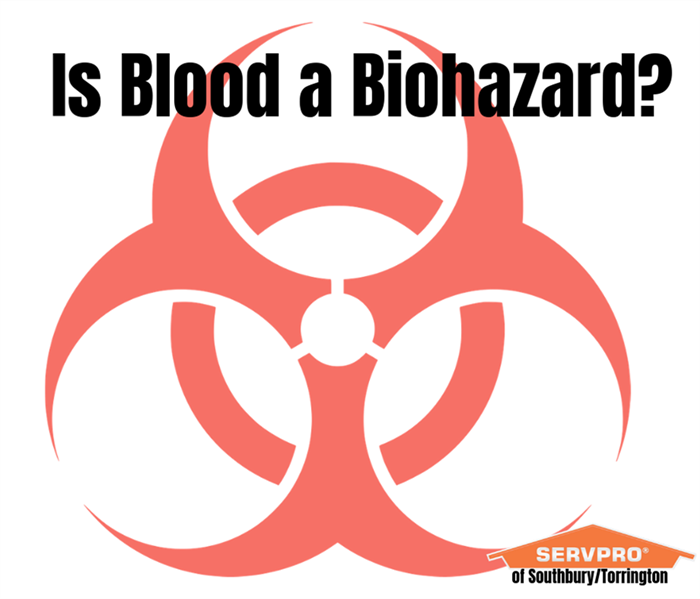Question From Our Customers: Is Blood Considered a Biohazard?
8/21/2019 (Permalink)
 Because it contains dangerous pathogens, blood is considered a biohazard and requires professional cleanup when present at commercial properties,
Because it contains dangerous pathogens, blood is considered a biohazard and requires professional cleanup when present at commercial properties,
At times, we receive calls from business owners who are concerned that there may be a biohazardous situation in their building that requires a professional clean up.
Most of our customers know that bodily fluids can contain dangerous pathogens and are considered biohazards. However, they are not quite certain whether blood is a biohazard that requires professional clean up or if it they can clean it up themselves.
The definition of the word biohazard is “a substance that is a risk to human health or the environment arising from biological work, especially with microorganisms.”
Biohazards include bacteria, microorganisms, biologically derived toxins and viruses. Exposure to biohazards can be harmful and even fatal to humans and animals. Biohazards can also be toxic to the environment if not properly cleaned.
Because blood contains pathogens such as HIV and Hepatitis B&C, it is categorized as a biohazard and requires professional removal when present at commercial properties. Professionals who remediate biohazard situations must follow the protocol that has been established by the U.S. Centers for Disease Control. In addition to proper training, this protocol includes the use of personal protective gear such as a face shield or mask, eye protection and gloves.
The technicians at SERVPRO of Southbury/Torrington have been trained to effectively and safely clean and remove blood and other hazardous bodily fluids from commercial properties.




 24/7 Emergency Service
24/7 Emergency Service